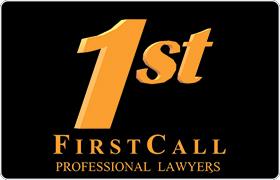Los Alamitos DUI-DWI Lawyer, California
Sponsored Law Firm
-
 x
x

Click For More Info:
-
First Call Legal Services Corporation
530 Hacienda Dr Unit 101B Vista, CA 92081» view mapCriminal Defense Effective. Versatile. Decisive.
Our vision is to build strong, trust-based client relationships from our first handshake. Every challenge is an opportunity. You need the RIGHT PEOPLE for the job you want done.
760-690-3999
Wayne Thomas Kistner
Other, Dispute Resolution, DUI-DWI, Medical Malpractice
Status: In Good Standing Licensed: 43 Years
Paul William Chandler
Power of Attorney, Real Estate Other, DUI-DWI, Business, Car Accident
Status: In Good Standing Licensed: 36 Years
Michael John Fairchild
Litigation, Child Custody, Juvenile Law, DUI-DWI
Status: In Good Standing Licensed: 21 Years
Kevin George Liebeck
Wrongful Termination, DUI-DWI, Personal Injury, Accident & Injury
Status: In Good Standing
Marc Andre Gibbons
Divorce & Family Law, DUI-DWI, Criminal, Personal Injury
Status: In Good Standing Licensed: 23 Years
 First Call Legal Services Vista, CA
First Call Legal Services Vista, CA Practice AreasExpertise
Practice AreasExpertise
